 |
Tracy Packiam Alloway, PhD, Assistant Professor, University of North Florida.
Tracy was recently awarded the prestigious Joseph Lister Award by the British Science Association for her contribution to science. Tracy has developed the only standardized working-memory tests for educators published by Psychological Corporation, which to date has been translated into 15 languages and used to screen for working memory problems in students with dyslexia, motor dyspraxia (Developmental Coordination Disorder), ADHD and Autistic Spectrum Disorder. She provides consultancy to the World Bank and her research has received widespread international coverage in hundreds of media outlets, including Scientific American, the BBC, Reuters, ABC News, and NBC. |
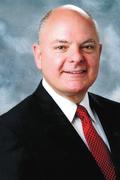 |
Dr. Gregory Bayer, CEO, Brain Resource
Dr. Bayer, Brain Resource’s new CEO, served most recently as the Chief Executive Officer of OptumHealth Behavioral Solutions, a division of United Health Group, serving 43 million members. Under his leadership, OptumHealth Behavioral Solutions doubled revenues to over two billion dollars, entered new markets and achieved a leading market position both domestically and internationally. Dr. Bayer led the decision to include Brain Resource products in OptumHealth’s offerings. |
 |
Sharon Begley, Senior Health & Science Correspondent, Reuters
Sharon Begley, the senior health & science correspondent at Reuters, was the science editor and the science columnist at Newsweek. She is the co-author (with Richard J. Davidson) of the 2012 book The Emotional Life of Your Brain, the author of the 2007 book Train Your Mind, Change Your Brain, and the co-author (with Jeffrey Schwartz) of the 2002 book The Mind and the Brain. She is the recipient of numerous awards for her writing, including an honorary degree from the University of North Carolina for communicating science to the public, and the Public Understanding of Science Award from the San Francisco Exploratorium. |
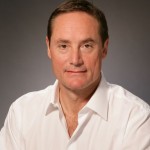 |
Dr. Robert Bilder, Chief of Medical Psychology-Neuropsychology, UCLA Semel Institute for Neuroscience
Dr. Bilder is currently the Michael E. Tennenbaum Family Professor of Psychiatry & Biobehavioral Sciences, David Geffen School of Medicine, and Professor of Psychology, College of Letters and Science; Chief of Medical Psychology — Neuropsychology and Director of the Tennenbaum Center for the Biology of Creativity in the Jane & Terry Semel Institute for Neuroscience and Human Behavior. Dr. Bilder’s current research focuses on transdisciplinary and translational research. Dr. Bilder has been awarded diplomate status by the American Board of Clinical Neuropsychology. Dr. Bilder is a Clinical Neuropsychologist who has been actively engaged for over 20 years in research on the neuroanatomic and neuropsychological bases of major mental illnesses. He has received many awards for his research contributions, served on diverse federal and international advisory boards, provided editorial service to many scholarly journals, and received multiple grants from the NIH, private foundations, and industry. |
 |
Sandra Bond Chapman, Founder and Director, Center for BrainHealth at The University of Texas at Dallas.
Sandra Bond Chapman, Ph.D., founder and chief director of the Center for BrainHealth at The University of Texas at Dallas, is committed to maximizing human cognitive potential across the entire human lifespan. As a cognitive neuroscientist with more than 40 funded research grants, Dr. Chapman’s scientific study elucidates and applies novel approaches to advance creative and critical thinking, strengthen healthy brain development, and incite innovation throughout life. Dr. Chapman’s research record and brain health breakthroughs have led to nationwide recognition and selection of the Center for BrainHealth as the single Virtual Center for the National Pediatric Acquired Brain Injury Plan to link all states with the most current assessment and training for brain injury. |
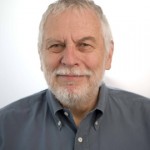 |
Nolan Bushnell, Founder, Atari
Nolan Key Bushnell is an American engineer and entrepreneur who founded both Atari, Inc and the Chuck E. Cheese’s Pizza-Time Theaters chain. Bushnell has been inducted into the Video Game Hall of Fame and the Consumer Electronics Association Hall of Fame, received the BAFTA Fellowship and the Nations Restaurant News “Innovator of the Year” award, and was named one of Newsweek’s “50 Men Who Changed America.” Bushnell has started more than twenty companies and is one of the founding fathers of the video game industry. He is currently the Co-Founder and Chief Game Designer of Anti-Aging Games, a website of games designed to stimulate the brain and created by Bushnell and two doctorate scientists. |
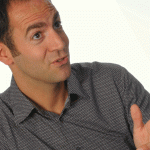 |
David Coleiro
David is Partner at Strategic North. Strategic North is a boutique healthcare strategic marketing consulting firm with a difference. His purpose in life is to help pharma and other healthcare companies navigate a successful path through the new, constantly changing world of healtcare and build joined up, strategic stories. David’s 14 years of rich experience in pharma consultancy across health outcomes, market research and strategic marketing. He has expertise in cutting edge insight into customer groups beyond the prescriber. He is more interested in developing future looking strategic scenarios that fit with an evolving healthcare environment. |
 |
Kristi Durazo
Kristi Durazo is Senior Strategy Advisor at American Heart Association. She is engaged in several exciting initiatives such as Well-being and Health (fascinating exploration of happiness and meaning in life and how it imptacts health). She also works on urban / commercial / residential design and healthy living. She is also working in the area of Gaming and Health, Experience Design and Health Behaviors, Health 2.0 Developer Challenge and Idea and Innovation Generation. |
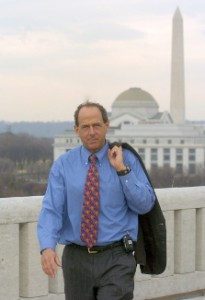 |
Keith Epstein, Senior strategic advisor, AARP
Keith Epstein is a senior strategic advisor at AARP, with an emphasis on strategic intelligence involving health care trends, and with a special interest in brain health and fitness. Before joining AARP, Epstein was an award-winning writer, editor and investigative journalist with two decades of experience in Washington, from which he often wrote about medicine and science. He was a member of BusinessWeek’s investigative team, worked for major newspapers, and directed original projects with national news organizations, scaling work and audience across multiple platforms for maximum impact. His articles on health have appeared in publications such as The Washington Post and the British Medical Journal, BMJ. |
 |
Alvaro Fernandez, CEO, SharpBrains
Alvaro Fernandez, named a Young Global Leader by the World Economic Forum in 2012, is SharpBrains’ co-founder and Chief Executive Officer. He has been quoted by The New York Times, The Wall Street Journal, CNN, and others. Alvaro co-authored The SharpBrains Guide to Brain Fitness, recently named a Best Book by AARP. He started his career at McKinsey & Company and led the launch of several publishing and education companies in the US and Europe. Alvaro has an MBA and MA in Education from Stanford University, and enjoys teaching The Science of Brain Health at UC-Berkeley Osher Lifelong Learning Institute. |
 |
Dr. Sheryl Flynn, CEO, Blue Marble Game Co
Dr. Sheryl Flynn is the founder and CEO of Blue Marble Game Co, a serious games company that focuses design and development of video games to enhance rehabilitation for people with disabilities worldwide. Sheryl has also begun the development of the Games4Rehab.com social network that aims to bring together individuals with disabilities, clinicians, researchers and game industry professionals to engage all integral parties and push the boundaries of games for rehabilitation. In addition to her entrepreneurial pursuits, Dr. Flynn also consults with the University of Southern California, Institute for Creative Technologies and Division of Biokinesiology and Physical Therapy on the NIDRR funded OPTT-RERC grant to develop a suite of games that clinicians can use in rehabilitation settings. In addition Sheryl also mentors students from many universities nationally and internationally. As a member of the American Physical Therapy Association, Sheryl has offered her expertise in using games for rehabilitation at local, state and national conferences. Dr. Flynn has authored numerous papers and presentations for national and international conferences and journals. |
 |
Lindsay Gaskins, CEO, Marbles: the Brain Store
Lindsay started Marbles: The Brain Store in 2008 with the simple idea of finding the best brain games out there and putting them all in one place. Not just products for aging baby boomers concerned about memory loss and victims of brain disorders, but also anyone who wanted to improve focus and attention, enhance creativity, become better multi-taskers. Marbles opened three more Chicagoland stores in 2009 and four more stores in 2010. Previously, Lindsay was a Vice President at Sandbox Industries, a Chicago-based venture capital fund and incubator. |
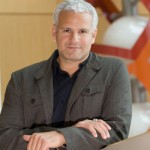 |
Adam Gazzaley, Director of the Neuroscience Imaging Center at the University of California, San Francisco
Dr. Gazzaley is a faculty member in the Neurology, Physiology and Psychiatry departments, and principal investigator of a cognitive neuroscience laboratory that conducts research on the neural mechanisms of attention and memory. A major focus of his research has been to expand our understanding of the alterations in the aging brain that lead to cognitive decline. His most recent studies explore how we can preserve and improve attention and memory as we get older. He has received many awards and honors for his research, including the 1997 Cortical Scholar Award, Pfizer/AFAR Innovations in Aging Award and the Ellison Foundation New Scholar Award in Aging. |
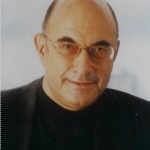 |
Dr. Elkhonon Goldberg, author, scientist, neuropsychologist
Elkhonon Goldberg is an active researcher in the field of cognitive neuroscience. He is particularly well recognized for his scientific contributions in the areas of neuropsychological theory, dynamic aspects of functional cortical organization, frontal lobes, hemispheric specialization, and memory. He is also well known for his innovative diagnostic and rehabilitative methods, as well as for his work in cognitive enhancement. Elkhonon Goldberg is the author of three books, including The New Executive Brain: Frontal Lobes in a Complex World, and co-authored The SharpBrains Guide to Brain Fitness, recently named a Best Book by AARP. Contemporary Neuropsychology and the Legacy of Luria (1990) is a tribute to his mentor and friend, the great neuropsychologist Alexandr Luria. |
 |
Annette Goodman, Chief Education Officer, Arrowsmith Program
Annette Goodman is the Chief Education Officer at Arrowsmith Program. Annette Goodman holds a masters degree in Industrial Psychology. Annette first worked for Arrowsmith Program twenty years ago as a cognitive teacher. After spending ten years working for a charitable organization, Annette spearheaded a grassroots, parent-driven effort to bring the Arrowsmith Program to the United States for her daughter and others in the community. Annette also serves as Arrowsmith Program’s Director of Teacher Training and in addition she leads numerous research and development projects at Arrowsmith. She is involved in projects related to refinements of the methodology as well as maintaining the integrity of the delivery of the program while offering it more broadly. |
 |
Eric B. Gordon, CEO, Atentiv
Mr. Gordon has a successful track record of identifying and bringing emerging medical and healthcare technologies into the clinic, industry and major market dominance. Over the last 26 years he has been directly instrumental, initiated and managed through full development and/or full global commercialization seven other startup companies in pediatric, adult and traveler’s vaccines (Connaught Labs (now Sanofi-Pasteur, the largest global vaccine co.) and Virogenetics), combinatorial chemistry for drug discovery/IPO (ArQule), clinical genomics for drug discovery and diagnostics (Ardais), drug-delivery for endometriosis and other women’s health applications (Combinent), HDL/CHD therapeutics and clinical models (Cardium) and in behavioral health/ADHD diagnostics (BioBehavioral Diagnostics.) |
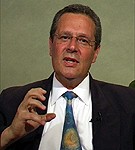 |
Dr. Evian Gordon, Executive Chairman, Brain Resource
Dr Evian Gordon, PhD, MBBCh, is the Executive Chairman of Brain Resource. He initially drew upon his science and medical background to establish the interdisciplinary Brain Dynamics Center, in 1986. Through the Brain Dynamics Center and its collaborative networks, Dr Gordon established an “integrative neuroscience” approach, grounded in the use of standardized methods across multiple types of data. Using this approach, Dr Gordon founded the “Brain Resource Company”, that created the first international database on the human brain. The database is the asset which underpins the development of new tools for brain health and its personalized application in the market, such as assessments of brain health, decision support systems, and personalized training programs. Brain Resource has also supported the formation of a non-profit 501c3 Foundation, called ‘BRAINnet” (www.BRAINnet.net), through which scientists have access to many of these datasets for independent research. |
 |
Dr. C. Shawn Green, University of Wisconsin-Madison
Dr. C. Shawn Green is the Assistant Professor at University of Wisconsin-Madison. Dr. Green’s research interests include the factors that affect the generality, rate, and depth of perceptual and cognitive learning. One of his main research tracks has focused on enhancements in visual processing evoked by playing one particular sub-genre of video games (so-called “action video games”). These enhancements range from low-level vision (e.g., improvements in acuity and contrast sensitivity), through mid-level vision (e.g. visual search in clutter), all the way to high-level vision (e.g., multiple-object tracking, mental rotation). Much of his current research focuses on the question of why games have these broad effects (in contrast to the specificity often seen as a result of visual learning) and how games can be harnessed for practical purposes such as rehabilitation and job training. He is also an affiliate faculty member in the Games+Learning Society at the University of Wisconsin-Madison. |
 |
Kathleen Herath, Associate Vice President Health & Productivity, Nationwide Insurance
Kathleen Herath, RN, BSN CRRN, oversees the Health and Productivity strategy at Nationwide for the company’s 33,000 associates. She is responsible for the company’s integrated health and productivity program, which includes: health screenings, wellness programs, disability and disease management, health education, work life resources and walking programs and occupational health clinics. The Health and Productivity program at Nationwide has been awarded more than six awards in the last three years including the prestigious C. Everett Koop National Health Award and SharpBrains’ Brain Fitness Innovation Award. |
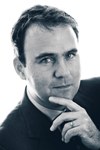 |
Jonas Jendi, CEO, Cogmed
Jonas Jendi joined Cogmed in 2001 as its chief executive officer. In 2007, Jendi opened Cogmed’s North American headquarters in Naperville, IL, where he is now based. Prior to Cogmed, Jendi provided strategic consulting for the Boston Consulting Group in Stockholm and Paris, and held management and consulting roles for various technology start-ups. He holds a MS from the Stockholm School of Economics. |
 |
Dr. Holly Jimison, Associate Professor, Dept of Medical Informatics &Clinical Epidemiology, Oregon Health & Science
Holly B. Jimison, PhD is an associate professor of medical informatics and clinical epidemiology at Oregon Health & Science University, with expertise and research experience in the design and evaluation of home monitoring and interactive health management tools for a variety of consumer populations. Most recently, Dr. Jimison’s research has focused on health information tools and assistive technology for elders in the home and for chronic disease management. Dr. Jimison is a member of the Executive Council of Oregon’s Center for Aging and Technology, and is also a faculty member of the Point-of-Care Laboratory at OHSU, where she has conducted usability tests of a variety of home health technologies in a simulated home prior their deployment in the homes of research subjects. Dr. Jimison is a Fellow of the American College of Medical Informatics, past president of the Oregon Chapter of the Health Information Management Systems Society, and an editor of a textbook on Consumer Health Informatics. |
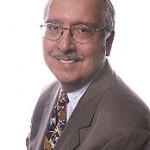 |
Peter Kissinger, President, AAA Foundation for Traffic Safety
J. Peter Kissinger is the President and Chief Executive Officer of the AAA Foundation for Traffic Safety, a position he assumed in May of 2002. The Foundation is a publicly supported, charitable research and educational organization that was founded by AAA in 1947. Its focus is on “saving lives through research and education.” The Foundation is supported primarily by contributions from AAA clubs and individual AAA members. |
 |
Kenneth Kosik, Co-Director, UC Santa Barbara Neuroscience Research Institute
Dr. Kosik is the Co-Director of UCSB Neuroscience Research Institute and Founder of CFIT. He received his M.D. degree from the Medical College of Pennsylvania, completed a neurology residency from Tufts New England Medical Center, and held various appointments at the Harvard Medical School. In the fall of 2004 he assumed the co-directorship of the Neuroscience Research Institute and the Harriman Chair at the University of California Santa Barbara. He has received multiple awards, including a Whitaker Health Sciences Award from Massachusetts Institute of Technology, the Derek Denny-Brown Neurological Scholar Award from the American Neurological Association, the Zenith Award from the Alzheimer’s Association, and a NASA Group Achievement Award. |
 |
Corinna E. Lathan, Founder and CEO, AnthroTronix
Dr. Corinna Lathan co-founded AnthroTronix and is currently Board Chair and Chief Executive Officer. Dr. Lathan’s diverse background includes extensive research, teaching, and consulting in the areas of human performance engineering, medical device design, and assistive technology. Previously, Dr. Lathan was an Associate Professor of Biomedical Engineering at The Catholic University of America (CUA) and an Adjunct Associate Professor of Aerospace Engineering at the University of Maryland, College Park. Her work with children with disabilities and robotics has been featured in Forbes, Time, and the New Yorker magazines as well as led to such distinctions as Maryland’s “Top Innovator of the Year,” MIT Technology Review Magazine’s “Top 100 World Innovators,” and one of Fast Company Magazines “Most Creative People in Business.” She has also been named a Technology Pioneer and a Young Global Leader by the World Economic Forum and is currently on their Global Agenda Council for Robotics and Smart devices. She is actively involved in educational outreach programs that empower women and minorities in science and technology. |
 |
Tan Le, CEO, Emotiv Lifesciences
Tan Le is a technology entrepreneur, business executive and sought-after speaker. She is founder and CEO of Emotiv Lifesciences, a bioinformatics company that advances understanding of the human brain and identifies biomarkers for mental and other neurological conditions using electroencephalography (EEG). She is pursuing the dream of performing inexpensive and widespread brain function screening to catch early signs of autism, epilepsy, learning disabilities, ADHD, and other conditions. Tan has received many awards and appeared in innumerable ‘Who’s Who in Australia’ lists; she was named among Fast Company’s Most Influential Women in Technology in 2010 and Forbes‘ 50 Names You Need to Know in 2011. In 2009, she was honored by the World Economic Forum as a Young Global Leader since 2009, and in 2011, she was recognized with the AutoVision Innovations Award and honored as a Monash University Distinguished Alumni Award recipient. |
 |
Brian Mossop
Brian is currently the Community Editor at Wired, where he work across the brand, both magazine and website, to build and maintain strong social communities. Brian received a BS in Electrical Engineering from Lafayette College, and a PhD in Biomedical Engineering from Duke University in 2006. His postdoctoral work was in neuroscience at UCSF and Genentech. Brian has written about science for Wired, Scientific American, Slate, Scientific American MIND, and elsewhere. I primarily cover topics on neuroscience, development, behavior change, and health. |
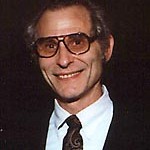 |
Dr. Michael Posner, Professor Emeritus, University of Oregon
Michael Posner is Professor Emeritus at the University of Oregon and Adjunct Professor at the Weill Medical College in New York (Sackler Institute). He is currently engaged in a project with Mary K. Rothbart to understand the development of brain networks underlying attention. This work explores the interaction of genes and experience in normal and atypical development. |
|
|
 |
Dr. Dharma Singh Khalsa, President, Alzheimer’s Research and Prevention Foundation
Dr Dharma Singh Khalsa, M.D. has been the President and Medical Director of the Alzheimer’s Research and Prevention Foundation in Tucson, Arizona, the original voice in the integrative or holistic medical approach to the prevention and treatment of memory loss. The ARPF is dedicated to fighting Alzheimer’s disease and finding a cure through research and prevention. Dr. Khalsa graduated from Creighton University School of Medicine in 1975, and received his postgraduate training in anesthesiology at the University of California, San Francisco where he was chief resident. As chief resident, he conducted highly acclaimed research on anesthesia for cardiac surgery and obstetrical anesthesiology. He is also a graduate of the University of California, Los Angeles Medical Acupuncture for Physicians Program, and has studied mind/body medicine at Harvard Medical School ‘s Mind/Body Medical Institute. Dr. Khalsa is board certified in anesthesiology and pain management. |
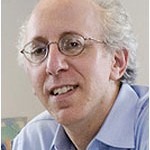 |
Yaakov Stern, Cognitive Neuroscience Division Leader, Columbia University
Dr. Stern directs the Cognitive Neuroscience Division of the Sergievsky Center and is Director of Neuropsychology for the Memory Disorders Clinic at the New York State Psychiatric Institute. He also directs the post-doctoral training program Neuropsychology and Cognition in Aging, and is a Professor of Clinical Neuropsychology in the Departments of Neurology, Psychiatry, and Psychology, as well as the in Sergievsky Center and the Taub Institute for the Research on Alzheimer’s Disease and the Aging Brain, at Columbia University College of Physicians and Surgeons. |
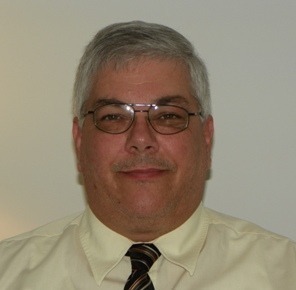 |
Rodney Stoops, Vice President, Providence Place Retirement Community
Rodney Stoops entered long term care in 2000 after most of his life in hotel/restaurant management. He has been able to use that customer service experience to change the traditional nursing culture and getting people to innovate and upgrade resident care. Mr. Stoops was the Administrator at Providence Place Retirement Community of Chambersburg for 11 1/2 years and has recently been made a Vice President. Providence Place Retirement Community is owned and operated by former Gov. of Pennsylvania, George M. Leader, and by the Leader family who has just celebrated their 50th year in long term care. |
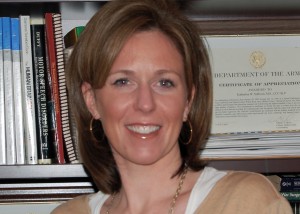 |
Kate Sullivan, Director of the Brain Fitness Center, Walter Reed National Military Medical Center
Kate Sullivan M.S., CCC-SLP, CBIS completed her undergraduate and graduate degrees in Communication Sciences and Disorders at James Madison University. She has been a speech-language pathologist at Walter Reed Army Medical Center for 10 years where she recently helped launch the Brain Fitness Center (BFC), located in the WRAMC’s Military Advanced Training Center, to complement traditional care approaches. |
 |
Mark Watson, Director of Community Outreach, Eaton Educational Group
The 2011–2012 school year is Mark’s seventh year at Eaton Arrowsmith School Vancouver, and fourth year as the Principal. In November of 2011 he transitioned from the Principal role to the Director of Community Outreach. As the Director of Community Outreach of Eaton Educational Group, he works closely with the Director, VicePrincipal, administrative staff, teachers and students to ensure the highest quality educational experience possible. Mr. Watson holds a Bachelor’s degree in 2001 from the University of Alberta in Faculty of Physical Education and Recreation and is working towards my MA in Educational Leadership. |
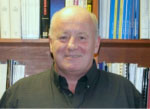 |
Keith Wesnes, Practice Leader, United BioSource Corporation
In 1986 Professor Wesnes founded Cognitive Drug Research (acquired in 2009 by United BioSource) to offer this system as a service in clinical trials. Professor Wesnes has published over 270 peer-reviewed research articles as well as more than 20 chapters and literature reviews. He holds Professorships at the Human Cognitive Neuroscience Unit at Northumbria University, Newcastle, UK and the Brain Sciences Institute at Swinburne University, Melbourne, Australia.
|
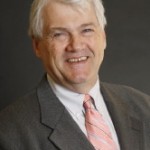 |
Dr. Peter Whitehouse, Professor, Case Western Reserve University
Peter J. Whitehouse, MD, PhD is Professor of Neurology as well as former Professor of Cognitive Science, Psychiatry, Neuroscience, Psychology, Nursing, Organizational Behavior, Bioethics and History. With colleagues he discovered fundamental aspects of the cholinergic pathology in Alzheimer’s and related dementias, which lead to the development of our current generation drugs to treat these conditions. He is clinically active at University Hospitals of Cleveland in the Joseph Foley Elder Health Center at Fairhill Center caring for individuals with concerns about their cognitive abilities as they age. His research interests include the neurobiology of what he used to refer to as Alzheimer’s disease and related conditions, the development of more effective treatments for individuals with cognitive impairment, including drugs and non-biological interventions, ethical issues in the medical profession and integrative health care systems. He is the author (with Danny George) of a provocative book entitled The Myth of Alzheimer’s: What You Aren’t Being Told About Today’s Most Dreaded Diagnosis. |
 |
Stanley Yang, CEO, NeuroSky
As Chief Executive Officer of NeuroSky, Inc., Stanley Yang is the visionary behind the bio-sensor company that has quickly become a global leader in mass market Brain-Computer Interface technology. NeuroSky has developed a non-invasive neural communication sensor that converts brainwaves and other bio-signals into digital electronic signals. This “ThinkGear” technology can control electronic devices, enable machines to adept to people, and further enhance education and research on creative applications powered by the brain. NeuroSky has forged successful partnerships with a broad range of companies from Fortune 500 industry leaders to innovative independent developers. Furthermore, NeuroSky leverages collaboration with a number of top domestic and international academic institutions to move technology out of the lab and into the marketplace. |